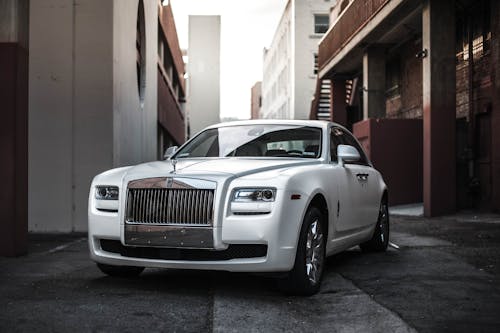Why Luxury Cars Are More Than Just Status Symbols
Luxury cars represent an intertwining of innovation, performance, and extraordinary design. They offer more than just transportation; they embody a lifestyle choice that resonates with aspirations of success. From their meticulous craftsmanship to the latest technological features, luxury cars capture attention and admiration. In today's world, they symbolize a commitment to excellence, setting the standard for both comfort and performance. Understanding the essence behind these vehicles reveals why they continue to dominate and allure enthusiasts and consumers alike.
The Allure of Luxury Cars
Luxury cars are more than a mode of transportation; they are a statement of personal success and refinement. These vehicles often feature superior craftsmanship, with attention to detail that sets them apart from standard automobiles. Many consumers are drawn to luxury cars for their prestigious brand image, which signifies exclusivity and affluence. However, beyond mere aesthetics, luxury cars sometimes incorporate cutting-edge technology and unparalleled driving experiences that redefine what we consider automotive excellence. The engineering prowess behind luxury cars is equally compelling, as performance capabilities often outshine those of regular cars. Additionally, these vehicles boast lush interiors, designed to offer the utmost comfort and convenience. Hence, owning a luxury car can be seen as a form of self-expression that reflects one's values and lifestyle choices.
Technological Innovations in Luxury Cars
Advancements in technology have profoundly impacted the luxury car market. Many top manufacturers, such as Mercedes-Benz and BMW, lead the charge in developing innovative features that elevate the driving experience. From intelligent infotainment systems that integrate seamlessly with smartphones to advanced safety systems that utilize sensors and AI, luxury cars are at the forefront of automotive technology. Moreover, electric luxury cars are gaining traction, showcasing a commitment to sustainability without compromising performance. The introduction of electric vehicles in this segment challenges traditional notions of luxury, proving that it can align with eco-friendly practices. Therefore, the wave of technological transformation not only enhances the allure of luxury cars but also encourages discussions about the future of transportation. Additionally, these innovations cater to an increasing demand for personalized driving experiences, allowing consumers to customize various features.
The Psychological Impact of Owning a Luxury Car
The impact of owning a luxury car extends beyond physical enjoyment. Psychologically, these vehicles can contribute to a sense of accomplishment and elevate self-esteem. For many, purchasing a luxury car represents a milestone that signifies success and ambition achieved. Furthermore, the exclusivity associated with luxury cars can create a sense of belonging to an elite group, fostering social connections and networks among affluent individuals. Interestingly, studies have shown that the aesthetics and performance of luxury cars can invoke strong emotional responses, enhancing the joy of ownership. Consequently, this emotional connection with luxury cars transforms mere driving into an experience imbued with pride and identity. Additionally, luxury car cultures often support events and community gatherings that cultivate lifestyles centered around these vehicles, deepening the appreciation for craftsmanship and engineering. Thus, the psychological implications of ownership are as significant as the car's physical attributes.
Luxury Cars as Investments
Investing in luxury cars can be a strategic financial decision. Certain models, particularly limited editions, appreciate over time, making them valuable assets. Car collectors often turn to these vehicles not only for enjoyment but also as a way to diversify their investment portfolios. The rarity of specific models combined with the prestige of certain brands can create a niche market that commands significant returns. However, purchasing a luxury car requires thorough research and market analysis to ensure that the investment is sound. Owners should consider factors such as mileage, rarity, and condition when evaluating their vehicle's potential value increase. In essence, the luxury car market functions similarly to high-end art and real estate, where rarity and desirability are paramount. As such, making informed choices in this realm can yield impressive financial rewards alongside the thrill of ownership.
The Societal Impact of Luxury Cars
Luxury cars have a considerable societal influence that transcends individual ownership. They drive trends in automotive design, often inspiring technological advancements and increased safety standards across all vehicle forms. The presence of luxury cars on the road prompts public discussions about wealth, success, and consumer behaviors, challenging societal norms regarding materialism. Interestingly, luxury cars also serve as a catalyst for environmental discussions, especially as more manufacturers shift towards sustainable practices and electric models. This transition pushes consumers to reevaluate their perceptions of luxury and responsibility. Additionally, luxury car brands are increasingly engaged in corporate social responsibility initiatives, positioning themselves as leaders in philanthropic efforts while maintaining their exclusivity. Hence, the influence of luxury cars extends beyond mere possessions; they shape cultural narratives and encourage discussions about ethics, sustainability, and societal values.
The Future Outlook of Luxury Cars
Looking ahead, the future of luxury cars appears promising yet complex. With the emergence of autonomous technology, luxury cars are likely to integrate features that prioritize both comfort and safety. This shift necessitates a reevaluation of consumer expectations as they adapt to new driving experiences. Furthermore, the emphasis on electric powertrains will continue to alter the landscape of luxury automobiles while responding to global environmental concerns. As consumers gravitate toward brands that prioritize sustainability, luxury manufacturers will need to innovate continually and remain competitive. Additionally, the rise of shared economy models may influence how luxury cars are accessed, potentially democratizing ownership experiences. Despite these shifts, the core allure of luxury cars as symbols of opulence and mastery in engineering will persist. Ultimately, as the automotive industry navigates through these transformations, luxury cars will continue to evolve, maintaining their status as sought-after possessions.
